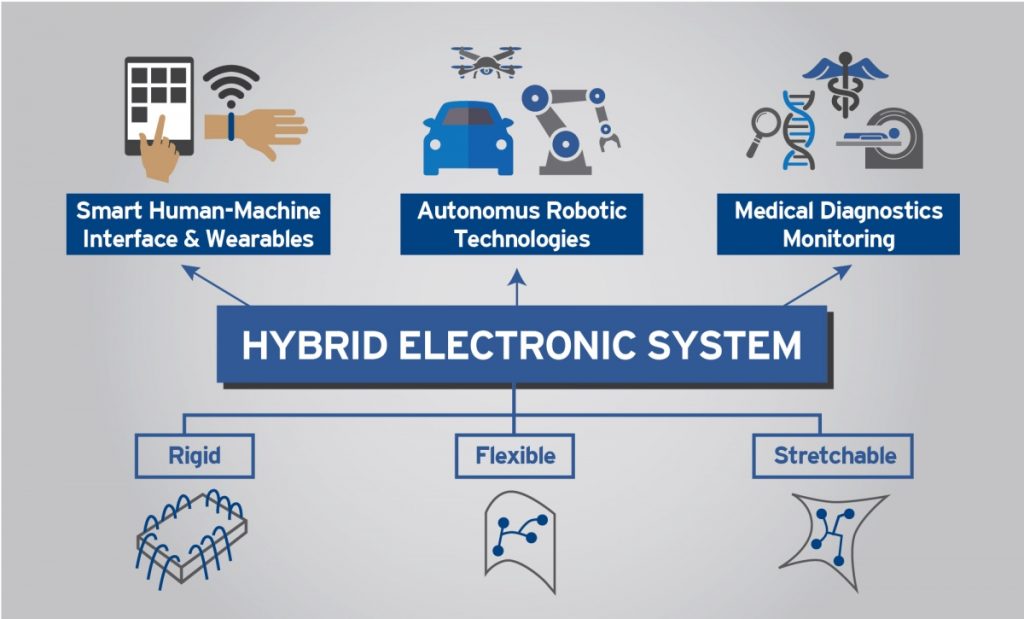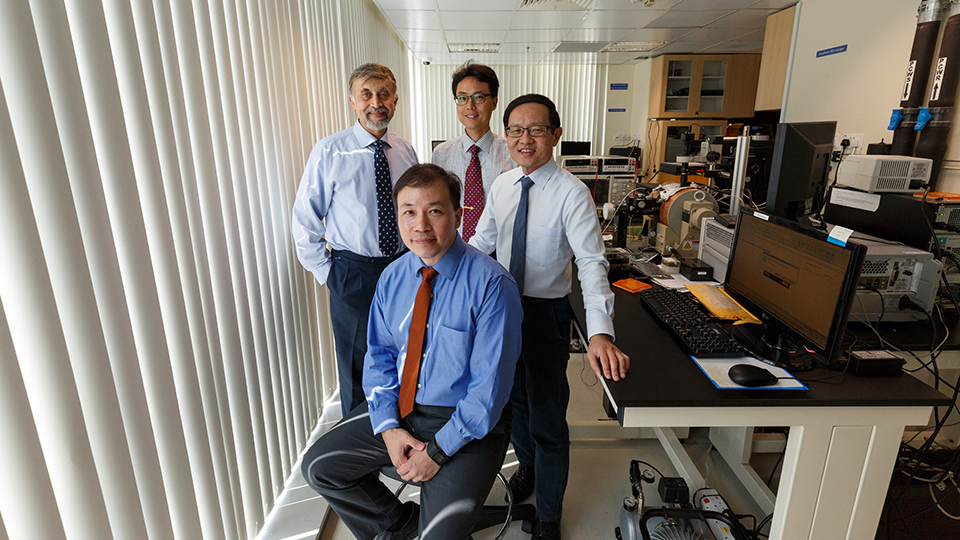News Highlights

NUS Engineering has launched a new $50 million research initiative, named Hybrid-Integrated Flexible Electronic Systems (HIFES), that will combine conventional rigid electronics with the latest flexible, stretchable electronics to create hybrid systems that will draw from the best of both worlds.
Rigid electronics are capable of high performance given their highly ordered structure. Printed flexible electronics tend to be less efficient in performance. However, the flexible nature offers many possibilities in designing electronics that interface with human beings and the natural environment, from the latest curved display screens to wearable health monitoring devices.
Professor Aaron Thean from NUS Electrical and Computer Engineering, who is leading the HIFES initiative, explained that as the move towards flexible electronics picks up speed, there is a need to find new ways to integrate both types of electronics into systems that are flexible but also high-performing.
The HIFES programme in NUS hopes to bring together specialists from various departments to work together. “As a flagship university, we should start integrating all the new innovative components and building a system from them,” said Prof Thean. “As innovators, we each have our core competency in our individual components, so we need to find ways to harness this towards application.”

The programme will address three broad areas of application: smart human machine interfaces and wearables; autonomous robotics; as well as diagnostic and medical applications.
Smart human interfaces and wearables are anticipated to be the next driving force for consumer electronics, while autonomous robotics include smart skin applications, where machines are integrated with flexible and stretchable factors to allow them to take on human forms or attributes.
The third area of diagnostic and medical applications involves new monitoring sensors for health science and conditions that are not only portable but can be attached to or wrapped around a human body. NUS Engineering already has a few projects in the works that will kick off this initiative.
A new state-of-the-art research facility will also be built, that will include world class fabrication technologies and serve as a hub to further develop and enhance heterogeneous electronic systems. Prof Thean shared that several local and overseas companies and institutes have expressed interest in the facility and programme, and that discussions are ongoing with these potential partners.
“The Principal Investigators (of each project) will also be interacting with some of the companies who may be on the receiving side of the technology in the future to get feedback on what would be interesting for them,” he added.
- Home
- Next Generation Flexibility
Singapore Hybrid-Integrated Next-Generation μ-Electronics (SHINE) Centre
- Block E6, #E6-5-3, 5 Engineering Drive 1, Singapore 117608
- +65 6601 8522
- shine@nus.edu.sg

